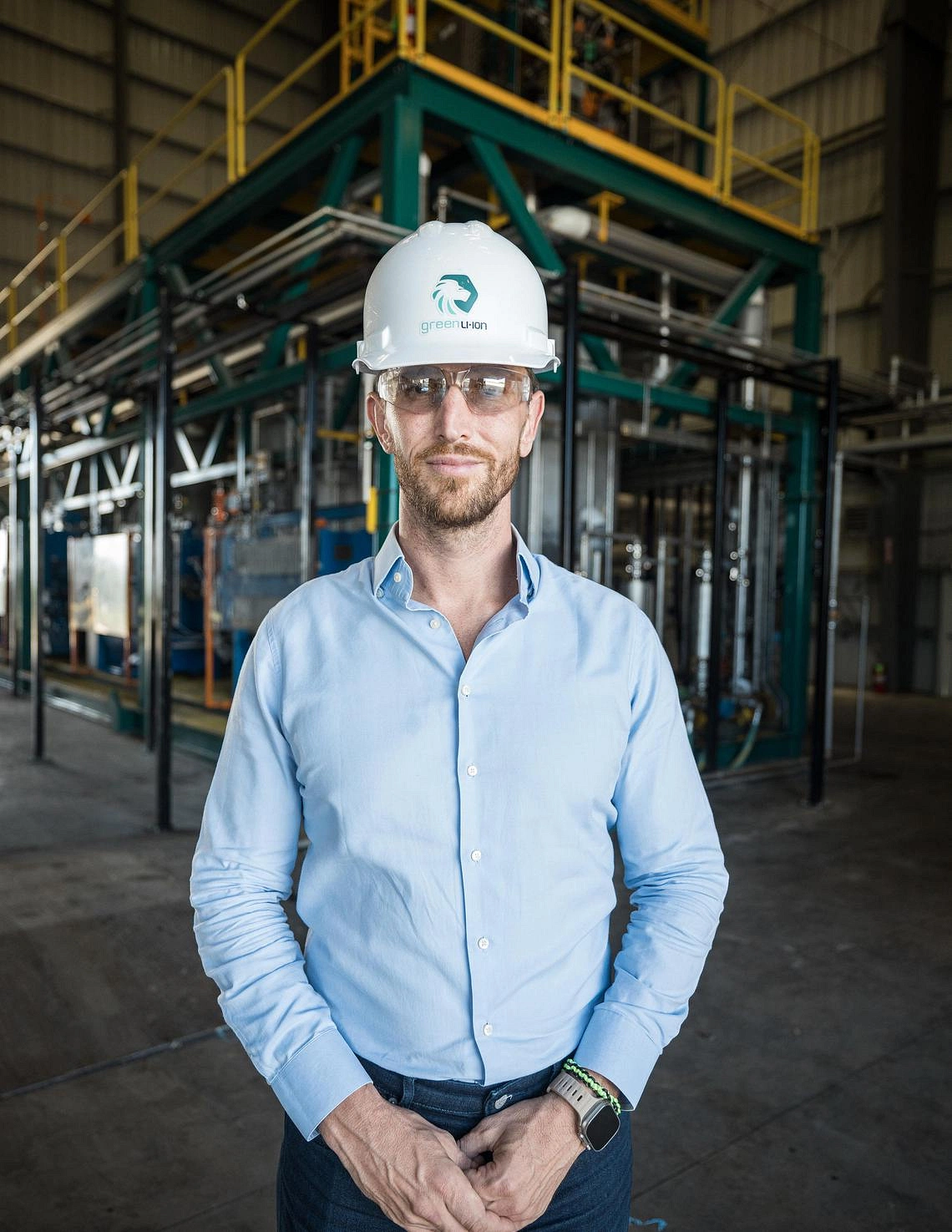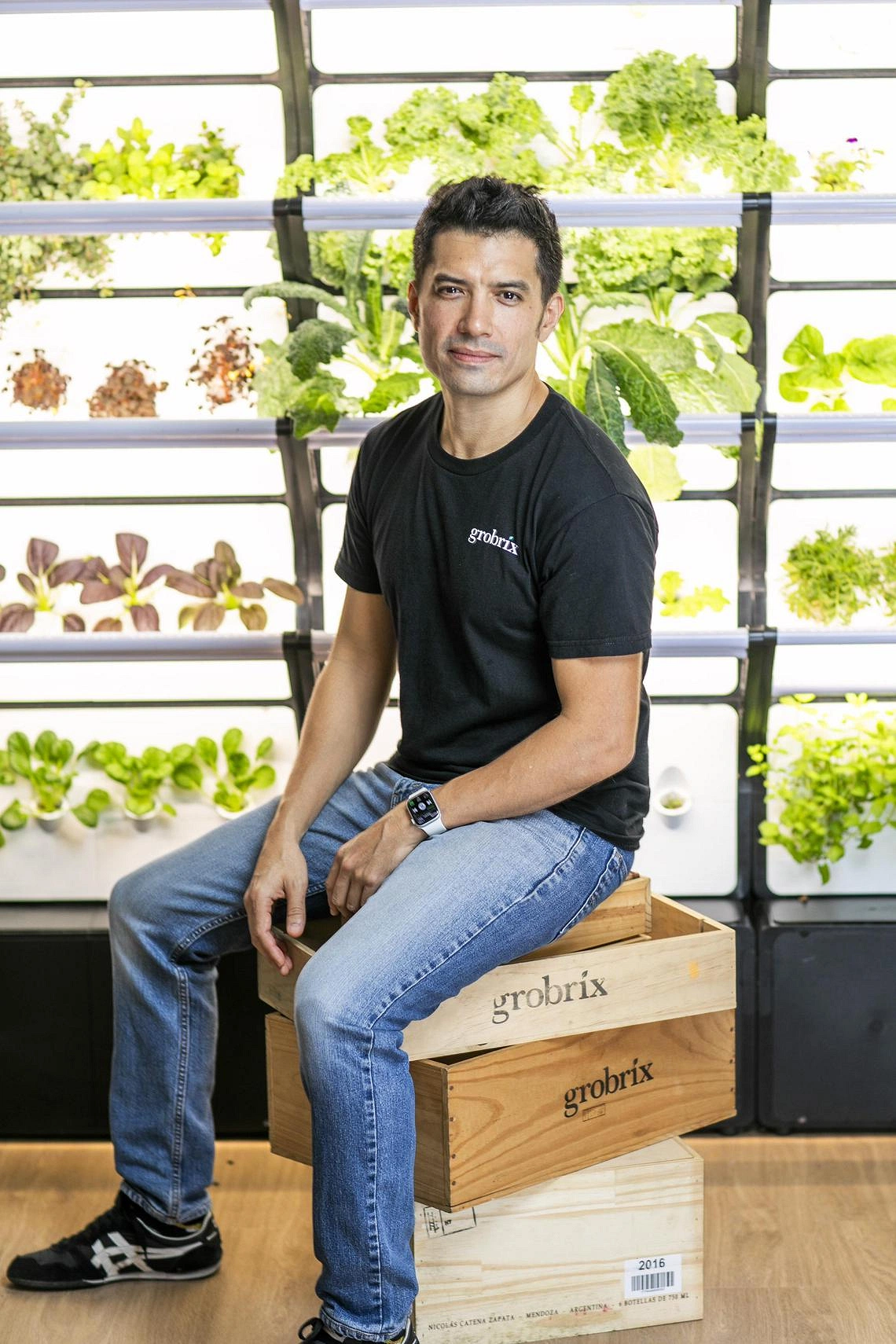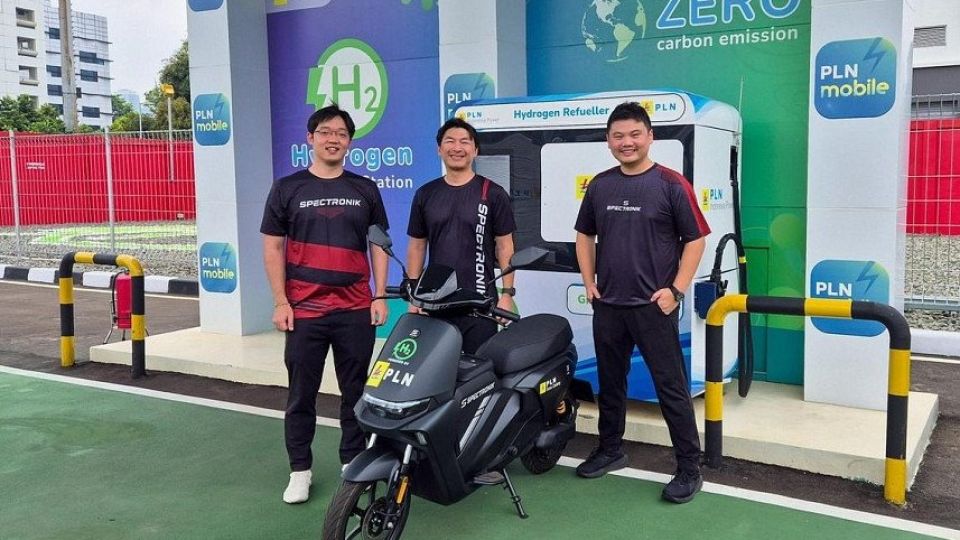December 2, 2024
WASHINGTON – At a time when his peers in America’s multitrillion-dollar green economy are losing sleep over the return of President-elect Donald Trump, Mr Leon Farrant is cool as a cucumber in his company headquarters in Singapore.
His business, Green Li-ion, pulled off a neat trick in 2024 in the US state of Oklahoma – setting up a plant that can turn spent lithium-ion batteries into shiny new American-made battery kits.
Making lithium-ion batteries is an unusually dirty business, heavily dependent on importing critical and scarce raw materials and taking a toll on the environment.
Green Li-ion is the only company in North America to offer a commercially scalable recycling process that fully recovers valuable battery materials, minimising waste and environmental damage. This is about as close as a green-tech firm can get to being Trump-proof.
It is well known that climate-change sceptic Trump prioritises fossil fuels. His administration may repeal parts of the 2022 Inflation Reduction Act through which the Biden administration has funnelled billions of dollars towards solar power, electric vehicles, carbon sequestration, hydrogen and other clean energy technologies.
Mr Farrant, a 40-year-old Australian and Singapore permanent resident, is among a small tribe of savvy Singapore-based entrepreneurs slowly finding a footing in the world’s largest green economy.
The US accounts for 60 per cent of global green economy market capitalisation, followed by Taiwan with 6 per cent, and China with 5 per cent, according to the London Stock Exchange Group study, Investing in the green economy 2024.
Another Singapore-based entrepreneur, Mr Jogjaman Jap, is the founder and chief executive of Spectronik, a start-up that makes hydrogen fuel cells. Bigger players in his field are fretting over the lack of nationwide hydrogen infrastructure in the US. They fear that generous government subsidies could dry up or big regulatory changes are coming.
But Mr Jogjaman, a 39-year-old Singaporean, is not worried because his focus is on portable power applications and niche markets. Think autonomous lawnmowers and drones, which run longer and cheaper on his fuel cells.
A drone using his fuel cells can fly for three hours on less than a kilogram of hydrogen gas.
The intensely competitive US market can seem hard to break into, but opportunities are not lacking for Singapore companies that recognise the draws of America’s massive market, its strong funding ecosystem and the hunger for the next big thing.
As Ms Lim Seow Hui, director of the Americas Division at Enterprise Singapore (EnterpriseSG), puts it: “The US is an attractive market for Singapore businesses due to its huge consumer base and concentration of large corporates with manufacturing and supply chain needs. It is also a good source for technology partnerships, investments and talent.”
EnterpriseSG has seen an increase in Singapore companies exploring US opportunities. “We have supported over 70 per cent more companies to explore overseas activities in 2023 compared with that in 2022,” Ms Lim said.
“Singapore start-ups and companies see the potential and are already offering solutions across renewable energy, green infrastructure and agri-food technologies.”
Mr Farrant saw an opportunity in the prevalent method of recycling used lithium-ion batteries. It involves shredding and processing them into a black mass that is exported, usually to China and South Korea, for further processing.
He entered the US market promising a better way through technology developed by his start-up, which he co-founded in 2019 with Dr Reza Katal, an Iranian permanent resident of Australia who earned his doctorate from the National University of Singapore.
“We recycle 100 per cent of the battery, so nothing gets wasted,” said Mr Farrant.
“We take the highest value elements like nickel, cobalt, manganese, lithium and, to a lesser extent, graphite, and completely purify them to make sure that they’re ready for reuse in batteries.
“About 1 per cent goes into what we call the impurity stream and that goes into cement production, or alloy production, so all of it gets reused.”

Mr Leon Farrant, the founder of Green Li-ion, at his battery recycling plant at Atoka, Oklahoma. PHOTO: COURTESY OF LEON FARRANT/THE STRAITS TIMES
His recycling plant in Oklahoma can take any lithium-ion battery – from a Tesla, a Nissan Leaf, an iPhone or even your grandma’s hearing aid – and turn it into reusable material.
The plant is set up to produce 1,000 tonnes of cathode material, a substance used in lithium-ion batteries that enables the flow of electric current and plays a crucial role in determining the battery’s performance. The capacity is comparable to remanufacturing 7.5 million electric vehicles or 26.5 million iPhones each year.
In the world of hydrogen fuel cells, Mr Jogjaman of Spectronik is serving an alternative that outclasses the usual batteries, used to power robots, drones and such, and can be refuelled faster than you can read an article on climate change.
The entrepreneur, who holds a master’s in engineering, said his firm’s portable hydrogen fuel cells offer three times the energy density of traditional batteries and can be refuelled in just five minutes.
They have worked well for one of his customers, a firm in San Antonio, Texas, that supplies autonomous lawnmowers for vegetation management at solar farms.
“If the robot uses a battery, it can cut grass for an hour and has to be recharged for an hour. With our hydrogen fuel cell, it can cut grass for three hours and recharge in five minutes. This translates to huge productivity gains and cost savings,” he added.
Mr Jogjaman’s clients also include American defence and aerospace companies that cannot buy fuel cells from China, which the US regards as an adversary. He said: “Because we are a Singapore company, we are uniquely positioned to serve US customers who cannot purchase fuel cells from other sources.”
He is not concerned about potential energy policy shake-ups under Trump, given his sweet spot in high value applications where customers will prioritise enhanced productivity over government handouts.
Beyond clean power, EnterpriseSG also sees opportunities for Singapore firms applying technology and innovation in the agriculture and food sectors. “The consumer base in the US is shifting to be more health and environmentally conscious,” said Ms Lim.
That was the draw for Mr Mathew Howe, an engineering graduate who founded Grobrix in 2019 after a career in financial markets. He offers a subscription-based service for indoor farming that is part salad bar and part art.

Mr Mathew Howe is an engineering graduate who founded Grobrix in 2019 after a career in financial markets. PHOTO: GROBRIX/THE STRAITS TIMES
Mr Howe, a Briton who is a Singapore permanent resident, caters to hotels, spas and corporate offices.
“I believe that there will be a time when all offices will have an edible garden, in the same way that they have a coffee machine,” said the 42-year-old.
After tasting success in Singapore and Kuala Lumpur, Grobrix branched into Boston, in partnership with Green City Growers, a local firm that services more than 250 urban farms in offices, schools and healthcare facilities.
“In the US, there’s a big issue with where our food’s coming from. It’s a growing trend with people like myself who have young children. The produce is not fresh, the prices are going through the roof,” said Mr Jason Capracotta, Grobrix’s US general manager. He sees an opportunity with health- and price-conscious Americans not wanting veggies brought in on long-haul trucks.
As the US green scene braces itself for some turbulence after Trump returns to office in January, these Singapore firms are prepared to ride it out one recycled battery, one office lettuce at a time.


